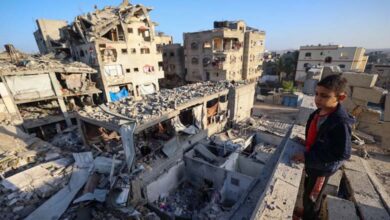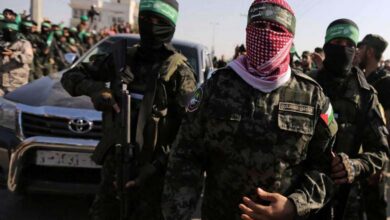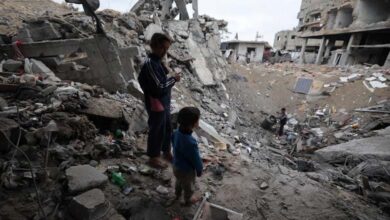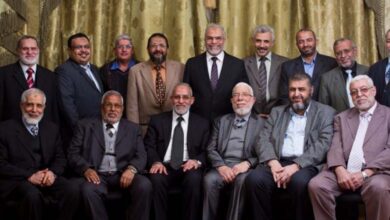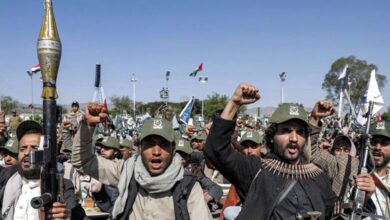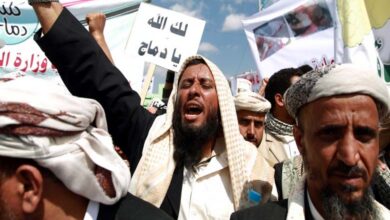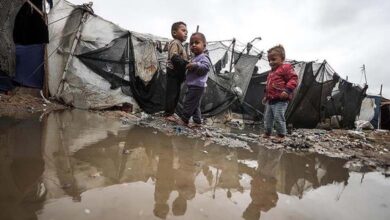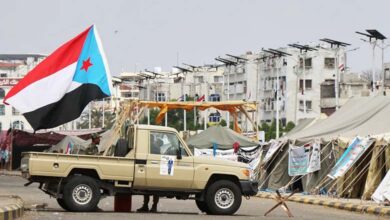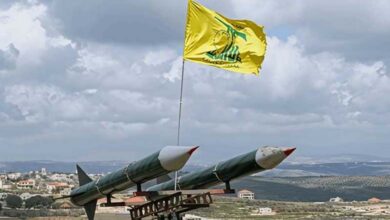“The Forest of Noise”: When Painful Memories Tell the Ruins of Gaza
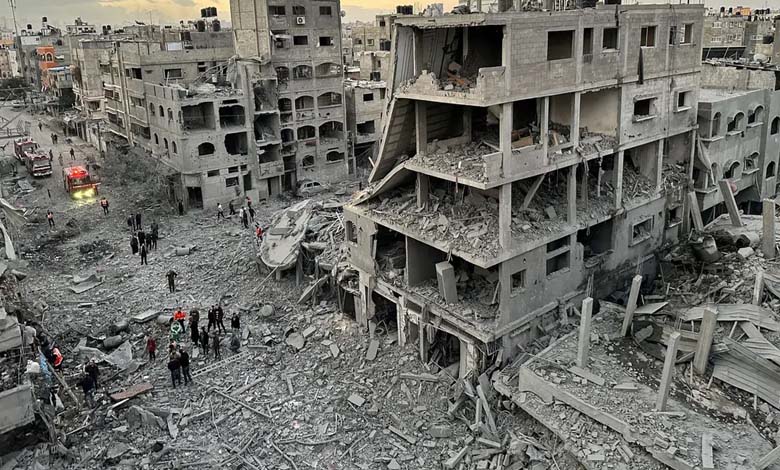
As a person leaves the stage of life, their story remains alive, recounting to future generations the moments captured in memory so they do not dissolve in the tumult of events.
-
UN Fears the Gaza and Lebanon Wars Spreading to Syria
-
Latest News from Gaza Now… Humanitarian Catastrophe and UN Cries in the North
Such is the case of the Palestinian poet Moussa Abou Tawha, who currently resides in New York City after leaving the Gaza Strip.
When you hear Abou Tawha reciting his poetry about Gaza, it is not as described by the people there and the difficult moments that inspired his writings.
“We breathe outside, but inside, we are not,” he says, reflecting on his current state to American news network CNN.
-
No Ceasefire in Gaza until De-escalation between Iran and Israel
-
Washington hopes to end the Gaza war following Sinwar’s death
Despite being physically alive, Abou Tawha describes how the spirit of real life has shattered after his displacement from his homeland, where he worked as a teacher and librarian, bearing the scars of witnessing violence on “an unmeasurable scale.”

“Our eyes see nothing beautiful… We do not see sunsets as we did before. We do not see the sea.” For many residents of Gaza, as well as for those who fled, the destruction and despair caused by the Israeli war have overshadowed simple moments of beauty.
-
Bodies devoured by stray dogs: “Tragedy” in northern Gaza described by Jabalia
-
Number of Deaths in Gaza So Far: A Shocking Toll of the War
Abou Tawha fled Gaza with his small family at the end of last year, after moving several times within the Palestinian enclave. Ultimately, he was able to leave because one of his children was born in the United States while he was earning his master’s degree at Syracuse University, thereby granting him American citizenship.
The journey to leave Gaza was long and painful, but amid the chaos and destruction, he continued to write.
-
The “Buried” Nightmare in Gaza: A “Tip of the Iceberg” Awaiting the End of the War
-
Disengagement from Gaza: Did Hezbollah accept in private what it publicly rejected?
Now, he is releasing his second poetry book, titled “The Forest of Noise,” written in English.
Part of this book contains selections of suffering. But it also speaks of survival, as the Palestinian poet mentions in an interview.

Living with the “Buzz” of Planes
Abou Tawha explains: “Every little hole in the street and every small bullet hole in the wall is a forest of noise.”
-
Israel Suffers Losses in Northern Gaza After a Year of Fighting and Siege
-
In Memory of the “Flood”: The War in Gaza Returns to Its Initial State
Airstrikes, missiles, and ambulance sirens are a constant presence in Moussa’s memory. “I do not remember living a single day without hearing the buzz of drones.”
His first poetry book, “Things You Might Find Hidden in My Ear” (2022), won the Palestine Book Award and the American Book Award.
But for the son of Gaza, the importance of his latest work lies not in his own story but in those of others. “It is not important that I wrote the book – what matters are the stories of the people in it.”
-
Rubble and Tombstones: “Unprecedented” Suffering in Gaza
-
One Year of War: Gaza, “The Largest Cemetery”
Although writing is painful for Moussa, he sees it as a necessary act of remembrance.
He acknowledges, “It is very painful for me to write poetry, just as it is painful for me to read my poems to other people.” But sharing these stories is vital, even if the world seems unwilling to listen.
He adds, “If this story touches someone’s heart, then I am doing my job as a human.”
Survival
Abou Tawha’s latest book revolves around the idea of survival and deepens the urgency of preserving the stories of those who have died while reflecting on his existence as a survivor.
-
Gaza Setback and the Success of Israeli Spies: An Analysis of Hezbollah Infiltration
-
By the numbers… A year of destruction in Gaza
He remembers: “I know their fate could be mine. I survived by chance during an airstrike in 2009 when I was sixteen. I could have been killed in the airstrike that destroyed my home in Beit Lahia (in northern Gaza).”
On October 28, 2023, Israel bombed Moussa’s family home, where he had gathered with more than 20 family members after the outbreak of war on October 7, he says.
Two days before the strike that targeted their home, Abou Tawha and his family had evacuated to the Jabalia refugee camp.
-
“The Island”… What do we know about Israel’s latest plans for northern Gaza?
-
After new demands from Hamas and Israel’s intransigence… have the Gaza truce negotiations stalled?
He wonders, “What would happen if I died in my house with all my family? Would people come to my grave – if there ever is a grave – saying: Oh, we are sorry for the mistake?”
Words filled with regret, reflecting the constant fear of Palestinians in Gaza that every moment might be their last, and that their lives are suspended at the mercy of Israeli military operations.
Explaining the War to Children
Today, the Palestinian poet struggles to explain the horrors unfolding in his homeland to his children. He states, “Even if they understand, it won’t help them. The most important thing is that the world understands this and does something concrete.”
-
Washington Pushes for the Deployment of Peacekeeping Forces in Gaza Ceasefire Arrangements
-
Washington Pushes for the Deployment of Peacekeeping Forces in Gaza Ceasefire Arrangements
While he has found refuge in the United States with his family, his disappointment with American politics is palpable.
He recalls a moment when his child confused clouds with the smoke from bombs used by Israel in Gaza.
For Abou Tawha, telling stories is not just a means of remembrance but a call to action. “If these people do not survive, their stories, at least, will survive.”
-
Gaza Negotiations: 7 Arduous Hours
-
Gaza War: How Did “Amazon” Contribute to the Precision of Israeli Airstrikes?
Moussa says that his seven-year-old cousin, Sama, was killed in an airstrike, along with 18 other family members.
He expresses frustration with the international community, especially the United States, which continues to arm Israel. He questions, “Why couldn’t they stop the massacre in Gaza that primarily affects children?”
Moussa’s parents and his brothers and sisters still live in the besieged Palestinian enclave. And he says with an emotional voice, “If God does not will it, if I lose one of my loved ones, I will not be able to say goodbye to them. This is what it means to be from Gaza.”


